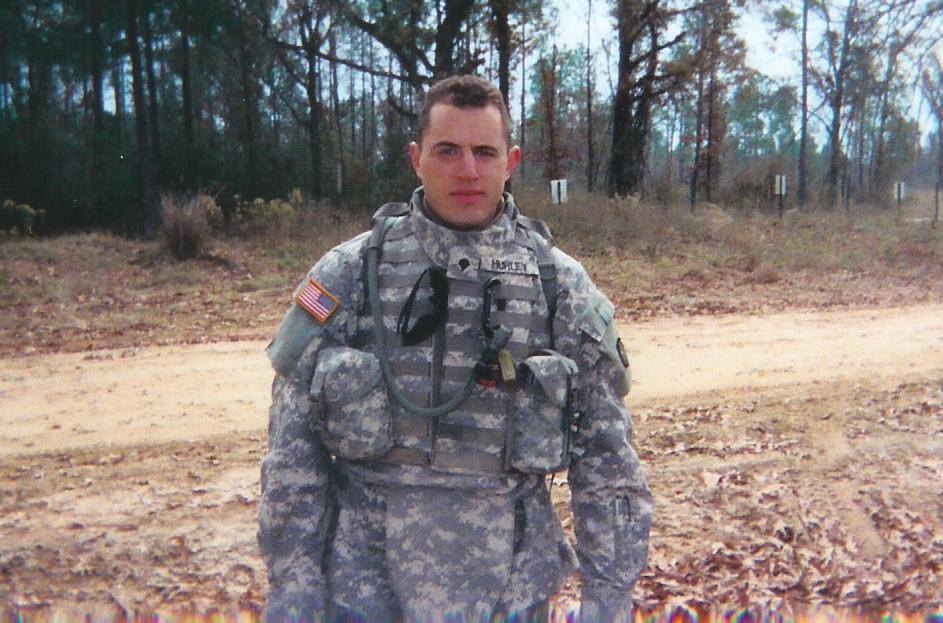Joe Hurley, a Travel Nursing Division Manager at Supplemental Health Care, has spent much of his adult life serving in the United States Army. He always thought that he would retire from a twenty-year career in the Army, but as is often the case, life intervened, and he left active duty service to take care of his three children. In his last few years of service, Joe had been a successful recruiter, and upon joining Supplemental Health Care’s Travel Nursing recruiting division, he felt like he had found a home.
“It felt right to me when I began recruiting travel nurses,” he explains. “I can relate to what they are getting into, like being in a new place with new coworkers, managing finances and everything that comes with it.”
Joe has excelled as a member of the Travel Nursing division and is looking forward to taking on more leadership roles at Supplemental Health Care in the future. He thrives on training others and helping his team succeed.
While discovering this new recruiting role and travel nursing community, Joe knew his life of military service was not finished. He was concerned about fellow veterans suffering after leaving their military service and wanted to come up with a proactive way to help. Whether struggling with physical or mental injuries, studies show an extraordinary number of veterans end up homeless or committing suicide because of the difficult transition to civilian life.
“I recognized that the veteran community had a lot of issues that needed to be addressed,” he explained. “The VA and other organizations recognize there are problems, but with the bureaucracy, it just takes too long to solve the challenges.”
He finally settled on an idea to develop a foundational approach to post-military life. He wanted the project to be something that a veteran could relate to, and a fitness program seemed like a natural way to return to their roots in the service. Thus, Iron Therapy Project was born in February 2018.
“Our ultimate goal is to help our vets break the pattern of negative activities after leaving the service. We are trying to provide them with a sort of ‘boot camp’ for success in their life. In their military career, everyone has to participate in physical fitness activities, and inviting them to participate in Iron Therapy is a way to get them back into a routine and environment where they feel comfortable.”
Initially, Iron Therapy Project provides 90-day gym memberships to veterans at a gym that is local to their home. The feeling is that if a veteran can adhere to a fitness regimen for 90 days, they are more likely to stick with it. They are provided with a personal training consultation through the gym at the start, then 30- and 60-days after. Participants also receive awards for achieving set goals.
Iron Therapy Project is now open to veterans throughout the United States and partnering on research with Stanford University and a Silicon Valley research company working to identify and understand neurological impairments like PTSD and traumatic brain injuries. They have big plans for 2019 too, as they are on target to release an Iron Therapy app and fitness tracker that would allow them to develop real-time data analysis and provide participants with workout and nutrition plans.
“The more we can do for the veteran holistically, the better chance they have at being successful. We start with fitness, but we are also connecting them with other organizations that deal with other aspects of their life, like finding work that is meaningful to them, or helping them with finances, etc. There is so much more than can be done.”
Joe is hopeful that they can raise additional funds and reach more veterans. They have several fundraisers planned, including a virtual 5K race on Pearl Harbor Day. Incorporated as a non-profit in New York and California, Joe is also looking into applying for grants that can further their mission.
“I think it is really important that we help veterans tap into more programs and activities that better align them with successful habits,” he concludes. “We want to change their lives for the better, not present them with a single act of gratitude. By setting them on a path for success, we are showing everyone that our veterans aren’t broken people or liabilities. Instead, our veterans should be looked upon as assets to be developed in their community.”
If you want more information about Iron Therapy Project, or to make a donation, please visit irontherapyproject.org.
search content
subscribe to
the shc blog



